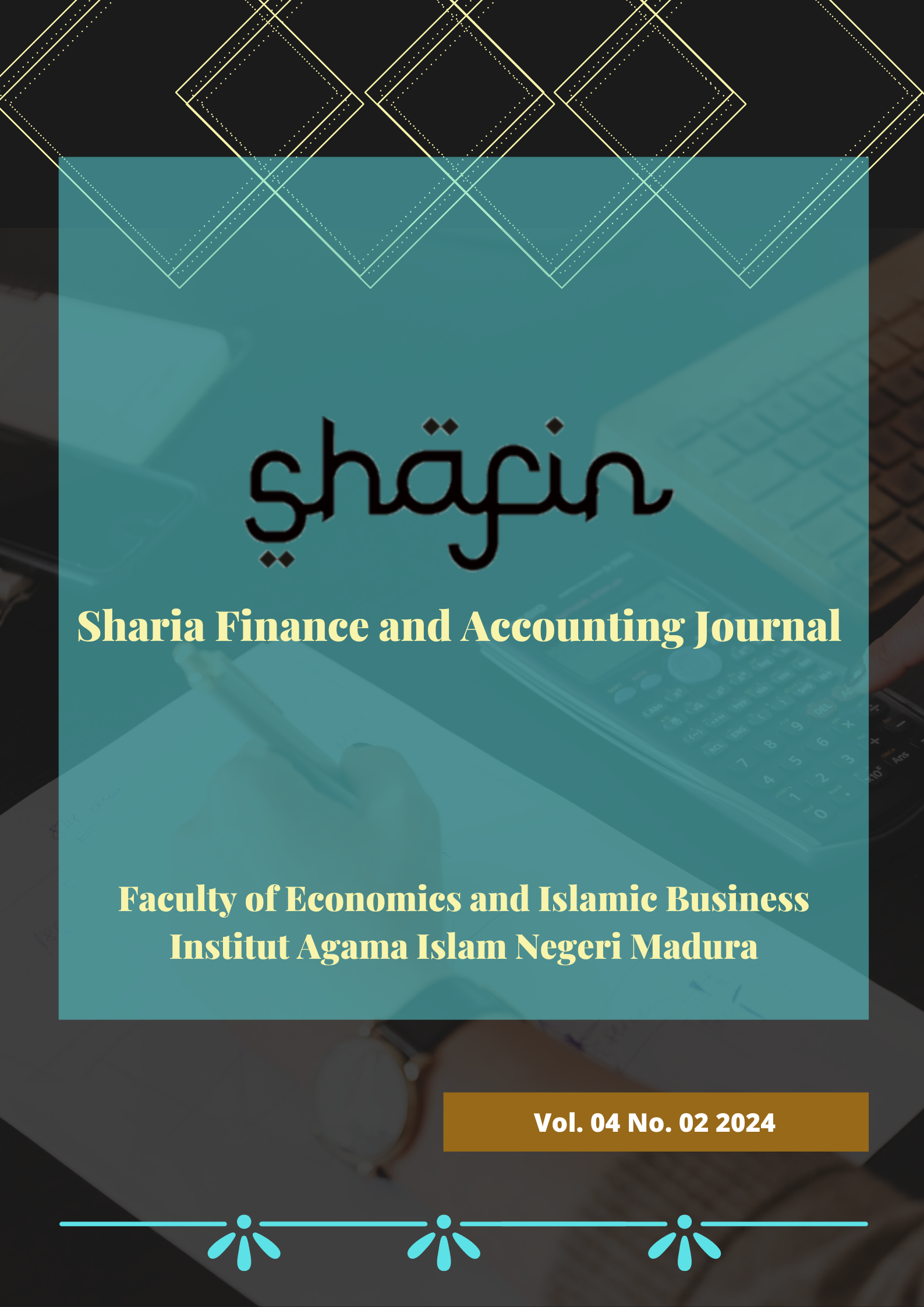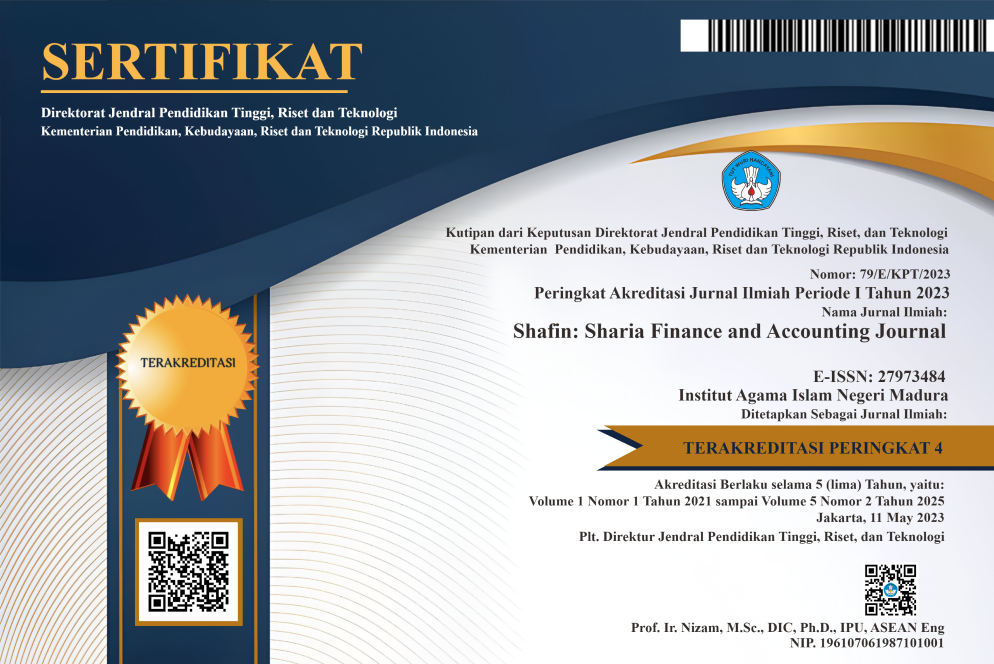Persepsi Etis Penghindaran Pajak: Tinjauan Pengaruh Perilaku Keputusan Investasi dan Love of Money
 Abstract views: 17
,
Abstract views: 17
,
 PDF downloads: 18
PDF downloads: 18
Abstract
This research aims to find empirical evidence regarding testing the effect of investment decision behavior and love of money on ethical perceptions of tax avoidance in order to answer the challenges of the phenomenon of investment and entrepreneurial education amidst advances in technology and information, especially for the millennial generation who are predominantly from universities. This research focuses on examining financial attitudes/behavior. The rise of investment risk is directly proportional to ethical or non-ethical tax behavior. This research method is a quantitative method. The population of this study were students of the Accounting/Economics Study Program at Universities in South Kalimantan. The sampling technique in this study used a purposive sampling method, obtaining 272 respondents. The research results show that investment decision behavior has no effect on ethical perceptions of tax avoidance. Apart from that, love of money effects the ethical perception of tax avoidance. These empirical findings can be a reference in identifying challenges in order to minimize tax avoidance.
Downloads
References
Asih, N. P. S. M., & Dwiyanti, K. T. (2019). Pengaruh Love Of Money, Machiavellian, dan Equity Sensitivity Terhadap Persepsi Etika Penggelapan Pajak (Tax Evasion). E-Jurnal Akuntansi, 26, 1412. https://doi.org/10.24843/eja.2019.v26.i02.p21
Dwi Laksono, D. G., & Firmansyah, A. (2020). the Role of Managerial Ability in Indonesia: Investment Opportunity Sets, Environmental Uncertainty, Tax Avoidance. Humanities & Social Sciences Reviews, 8(4), 1305–1318. https://doi.org/10.18510/hssr.2020.84123
Fagbemi, T. O., Uadiale, O. M., & Noah, A. O. (2010). The ethics of tax evasion: Perceptual evidence from Nigeria. European Journal of Social Sciences, 17(3), 360–371.
Farhan, M., Helmy, H., & Afriyenti, M. (2019). Pengaruh Machiavellian Dan Love Of Money Terhadap Persepsi Etika Penggelapan Pajak Dengan Religiusitas Sebagai Variabel Moderasi: Jurnal Eksplorasi Akuntansi, 1(1), 470–486. https://doi.org/10.24036/jea.v1i1.88
Opti, S., & Octaviany, V. (2022). Pengaruh Pengetahuan Perpajakan dan Love of Money terhadap Persepsi Penggelapan Pajak. International & National Conference on Accounting and Fraud Auditing.
Romario, R., & Rahmanto, B. T. (2023). Dampak Relativisme, Idealisme, Dan Cinta Uang Terhadap Persepsi Etis Penghindaran Pajak. Jurnal Proaksi, 10(2), 275–289. https://doi.org/10.32534/jpk.v10i2.4053
Silalahi, G. J., Siahaan, S. B., & Nainggolan, A. (2020). Analisis Pengaruh Profitabilitas, Ukuran Perusahaan, dan Keputusan Investasi Terhadap Tax Avoidance. Jurnal Manajemen, 6(2), 101–110. http://ejournal.lmiimedan.net
Styarini, D., & Nugrahani, T. S. (2020). Pengaruh Love Of Money, Machiavellian, Pemahaman Perpajakan, Tarif Pajak, dan Self Assessment System Terhadap Tax Evasion. Akuntansi Dewantara, 4(1), 22–32. https://doi.org/10.26460/ad.v4i1.5343
Tandelilin, E. (2010). Portofolio dan Investasi Teori dan Aplikasi. Kanisius.
Tang, T. L. P., Chen, Y. J., & Sutarso, T. (2008). Bad apples in bad (business) barrels: The love of money, machiavellianism, risk tolerance, and unethical behavior. Management Decision, 46(2), 243–263. https://doi.org/10.1108/00251740810854140
Wulandari, D. A., & Iramani, R. (2014). Studi Experienced Regret, Risk Tolerance, Overconfidance Dan Risk Perception Pada Pengambilan Keputusan Investasi. Journal of Business and Banking, 4(1), 55. https://doi.org/10.14414/jbb.v4i1.293
The journal operates an Open Access policy under a Creative Commons Non-Commercial Share-Alike license. All articles published Open Access will be immediately and permanently free for everyone to read and download.
• Creative Commons Attribution-NonCommercial (CC-BY-NC)

Shafin: Finance and Sharia Accounting Journal by http://http://ejournal.iainmadura.ac.id/index.php/shafin is licensed under a Creative Commons Attribution-NonCommercial 4.0 International License.
Based on a work at http://ejournal.iainmadura.ac.id.

























